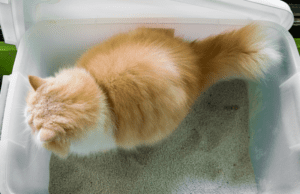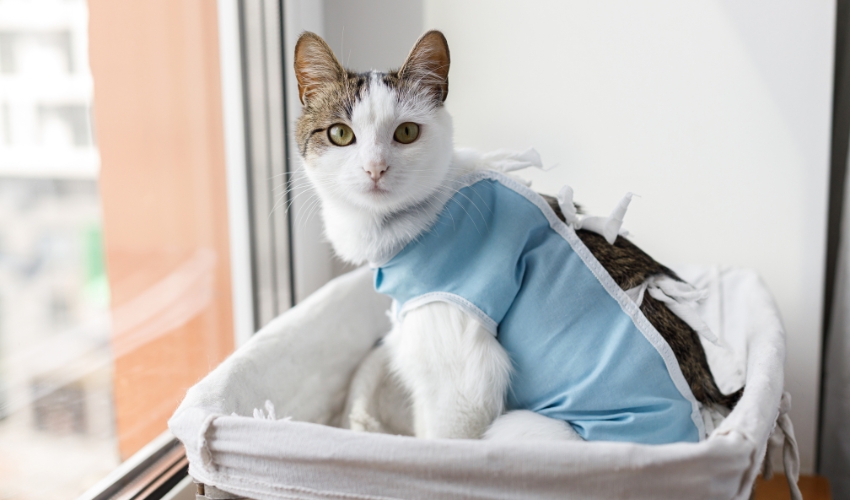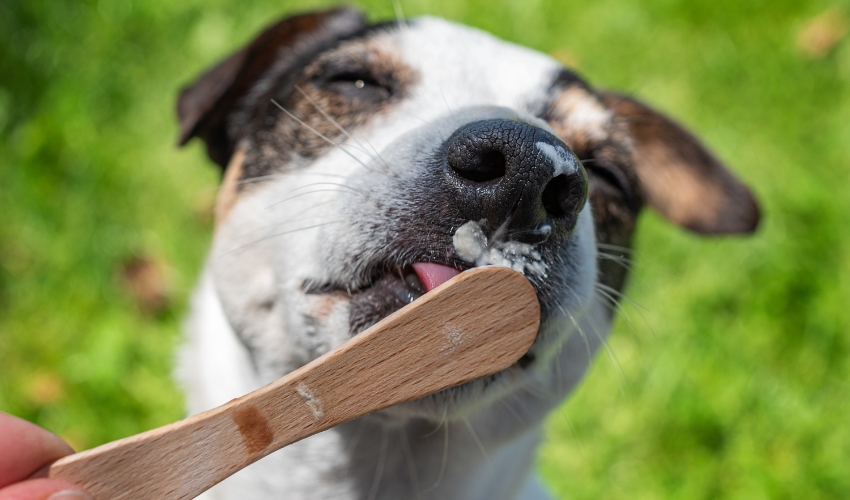As cat owners, we tend to be vigilant about our cat’s health. One aspect of their well-being that might not always be in our minds is their litter box behavior. However, did you know that your cat’s poop can give you an insight into their health? Regarding cat poop, many owners struggle with identifying what’s normal and what’s not.
In this blog post, we will discuss the different types of cat poop, what they might indicate about their health, how often should cats poop, and help you understand what to expect and when to be concerned.
What’s Normal and What’s Not
You’ll want to be aware of a few general patterns regarding your cat’s poop.
First, frequency
Cats are fairly regular, and their feces’ frequency indicates their digestive health. If your cat isn’t producing poop as often as usual, it could be a sign of constipation or a blockage, while producing poop too frequently may indicate diarrhea or irritable bowel syndrome.
Another thing to pay attention to when it comes to cat poop is the consistency and form.
Healthy cat poop is typically firm but not too hard or too soft. If your cat’s feces are consistently loose, it could indicate food allergies, infection, or inflammation. On the other hand, if it’s consistently hard, your cat may not be drinking enough water or suffering from dehydration.
Next, the color of your cat’s poop is a good indicator of their overall health.
Most cats produce brown feces, indicating that their digestive process works as it should. However, if you notice changes in color, such as black or white stools, it could be a sign of internal bleeding, liver disease, or a lack of bile. If you notice any such changes, consult your veterinarian right away.
Also, blood in your cat’s stool, whether bright red or tarry black, is a significant concern. It could indicate anything from minor irritation.
One less talked about factor regarding cat poop is the smell.
Sure, nobody loves the smell of poop. Still, if your cat’s feces are consistently more intense than usual, it could indicate an underlying issue. Extremely foul-smelling feces can indicate that your cat is not properly absorbing nutrients, leading to malnutrition.
How often should cats poop?

Cats, like humans, have individual differences in their bathroom habits. However, there are some general guidelines for what’s considered normal in terms of how often should cats poop:
Once a day
On average, most cats defecate once a day. This regularity is a sign of a healthy digestive system. Generally, it indicates that your cat’s diet is agreeing with them.
Frequency can vary
Some cats may go more frequently, while others may have a bowel movement every other day. As long as there’s consistency in their pattern, the frequency can vary without raising concerns.
Occasional variation
It’s not uncommon for cats to skip a day here and there. Stress, dietary changes, or minor disruptions in their routine can influence their bathroom habits.
Factors influencing cat poop frequency
Several factors can influence how often your cat poops, and understanding these can help you gauge what’s normal for your cat:
#1 Diet
Diet plays a crucial role in a cat’s digestive health. High-quality cat food with appropriate levels of fiber can support regular bowel movements.
#2 Age
A cat’s age can affect their bathroom habits. Kittens may defecate more frequently due to their rapid growth and high metabolism. At the same time, senior cats might have slightly less frequent bowel movements.
#3 Hydration
Adequate hydration is essential for a healthy digestive system. Cats not drinking enough water may have drier stools and less frequent bowel movements.
Cats are sensitive creatures; stress or anxiety can impact their bathroom habits. Significant life changes, like moving or introducing a new pet, can lead to variations in their routine.
Understanding how often your cat should poop is essential to responsible pet ownership. Regular monitoring allows you to notice any deviations from the norm, enabling you to seek timely veterinary care if needed.
Remember that while there are general guidelines for what’s considered normal, each cat is unique, and what’s typical for one might not be the same for another. Paying attention to your cat’s bowel behavior ensures their digestive health and overall well-being.
Takeaway
Remember, your cat’s digestive health significantly affects their overall well-being. Regular veterinary check-ups, a balanced diet, and a watchful eye on their behavior are your tools for ensuring that your cat enjoys a happy, healthy, and comfortable life.
By staying informed and proactive in monitoring your cat’s bathroom habits, you are demonstrating your commitment to their welfare. Through these collective efforts, you’re ensuring that your cat enjoys a life of contentment, happiness, and comfort. The bond you share with your pet is exceptional, and by safeguarding their digestive health, you’re contributing to a long and fulfilling journey together.
Learn more about pet resources and connect with other animal lovers!
Become a Dooberteer, and together, we can make a difference in the lives of our pets.












